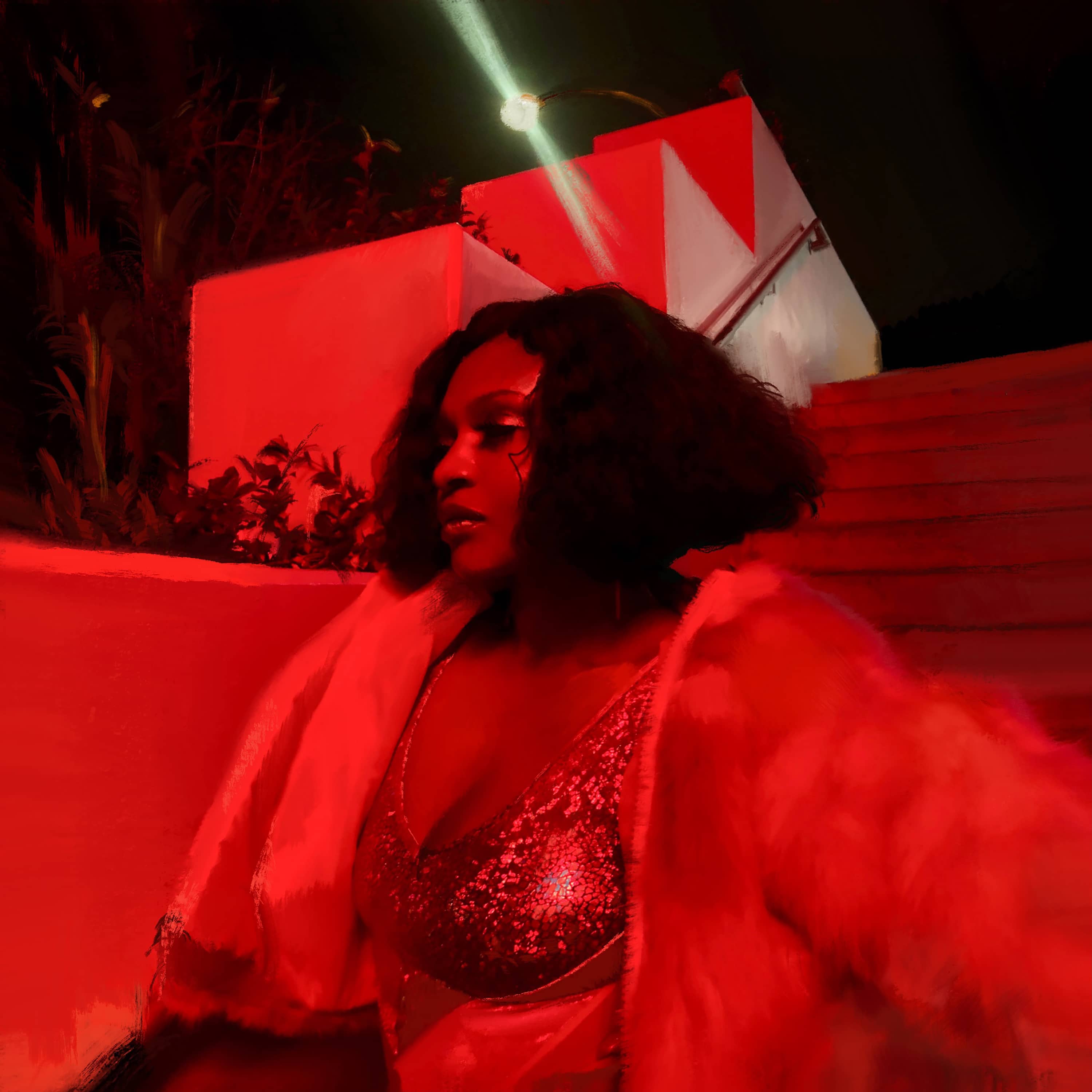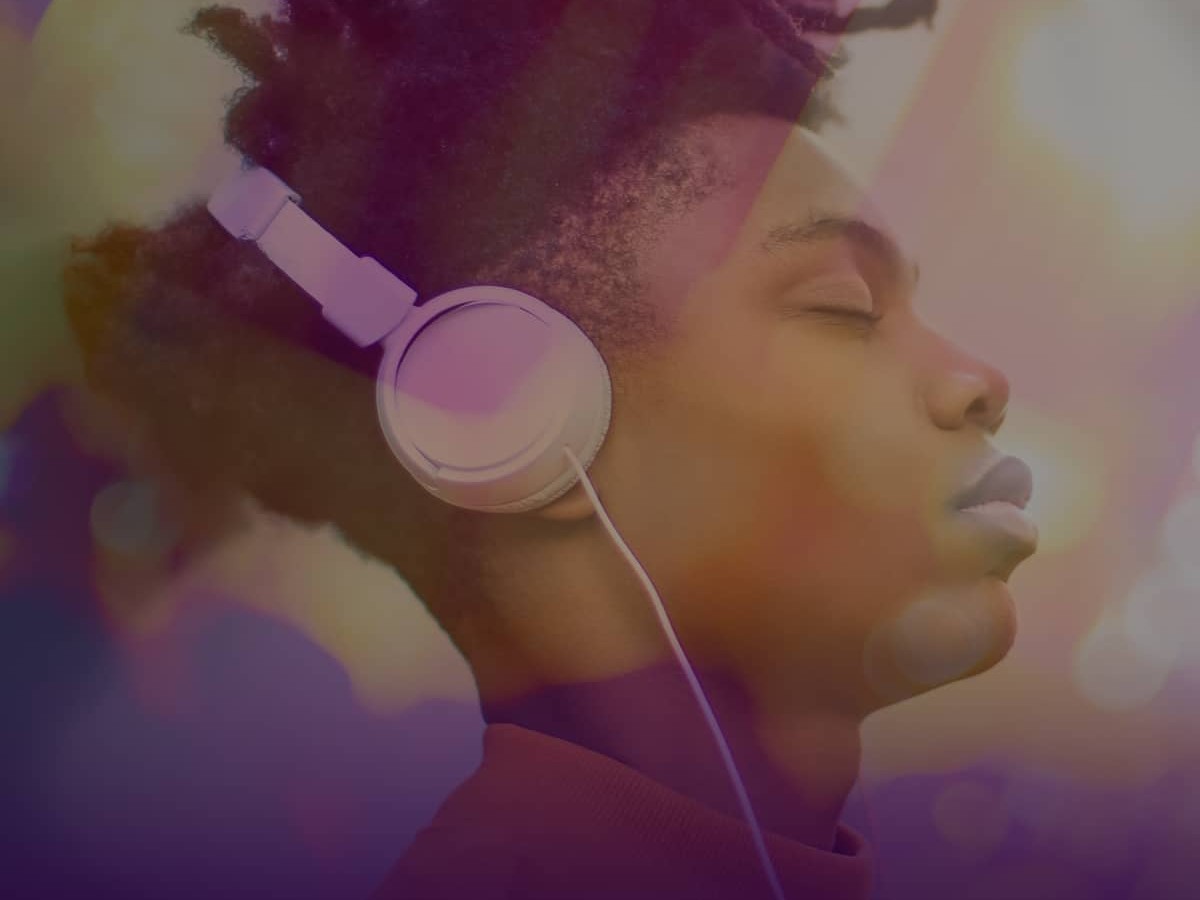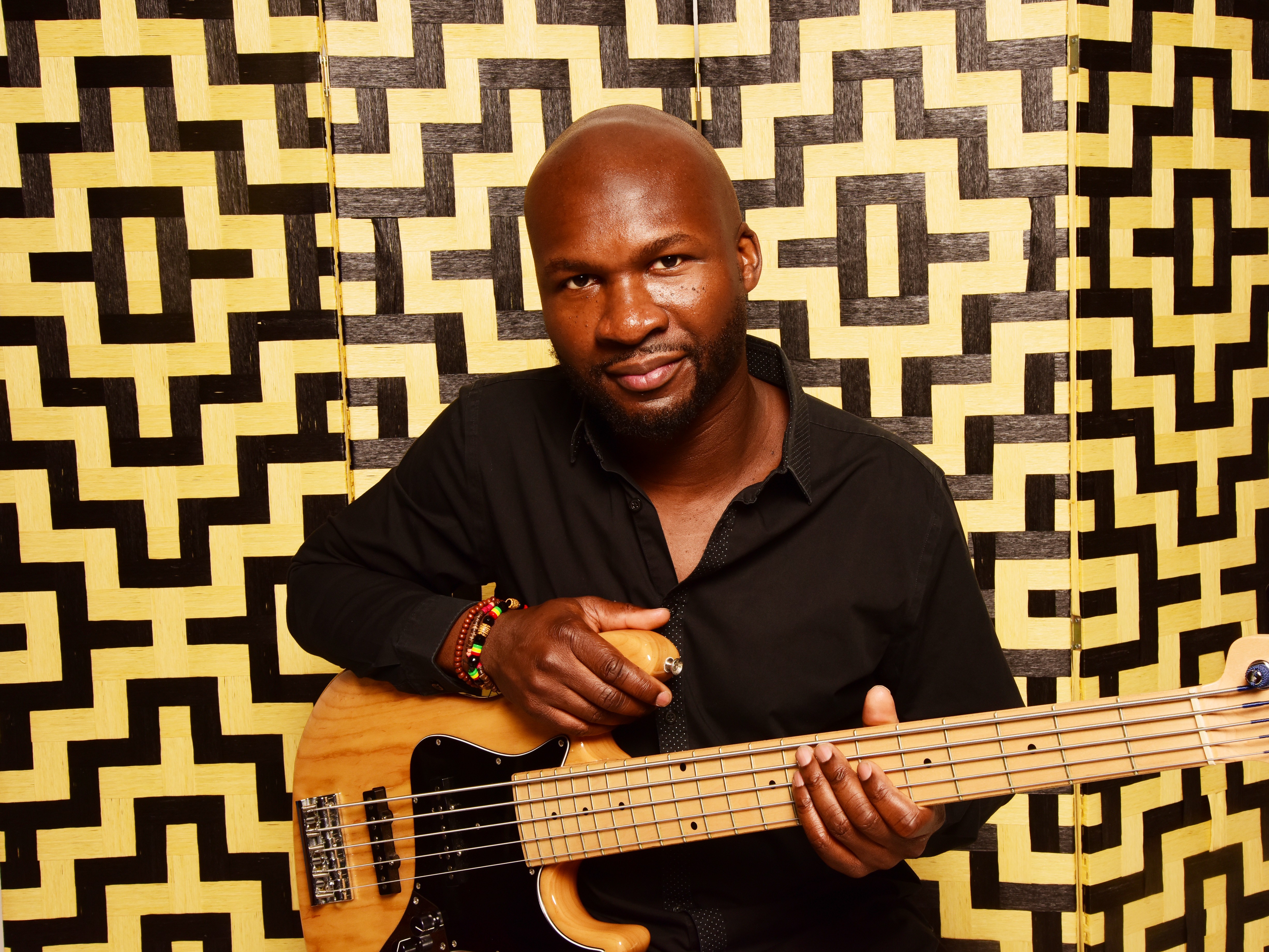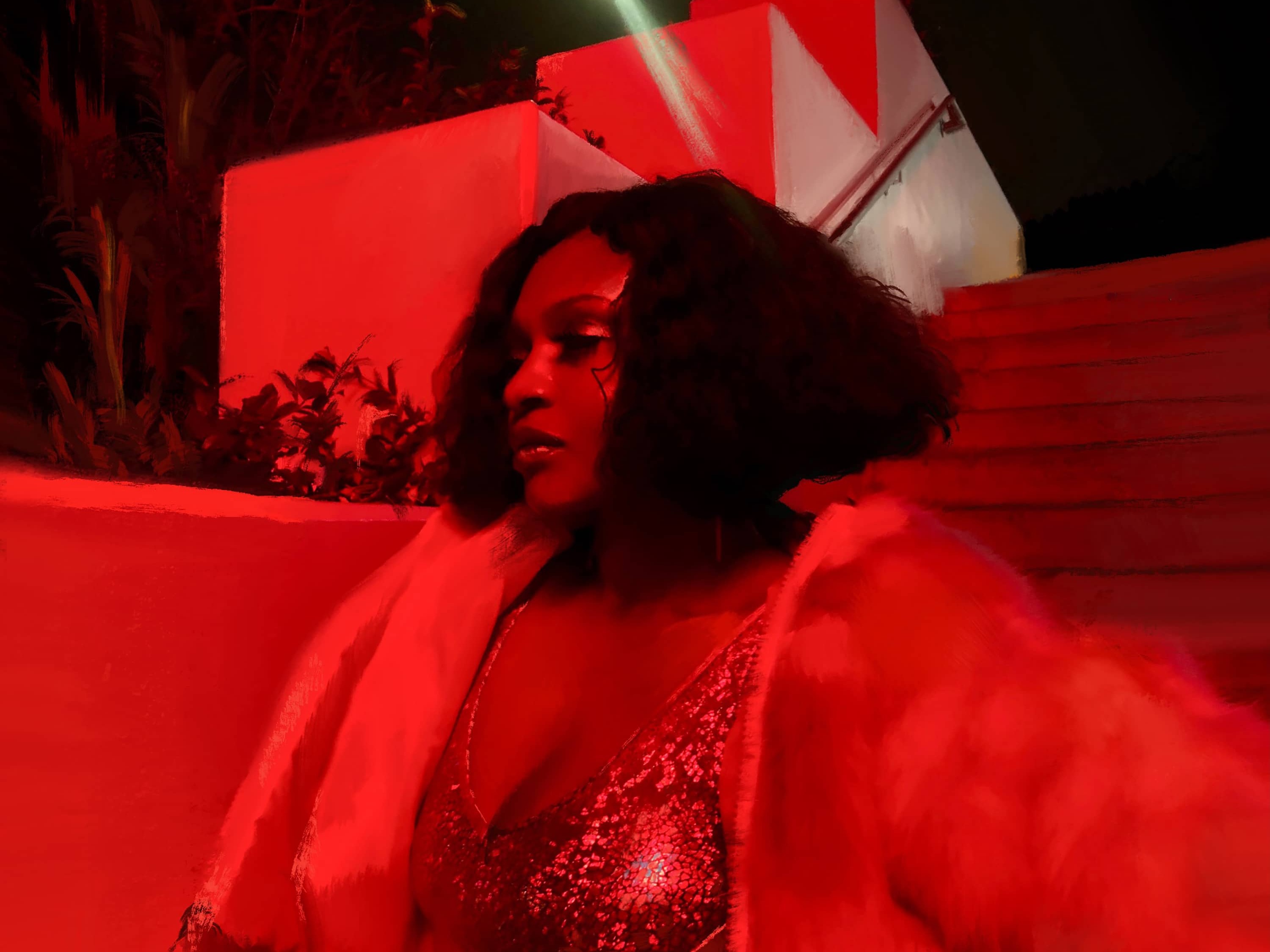Share this!
Exclusive Interview Inside "For The Love - EP" With Nigerian Born Artist Edoheart
In anticipation of her upcoming For The Love – EP, we’re excited to share an exclusive interview with this Nigerian-born artist Edoheart!
Edoheart is a self-produced musician, working from an apartment studio. She hand crafts every word, note, mix, and beat from found-sounds including heartbeats and thunderstorms. Her music is art. It is authentic, unique, and compelling. Edoheart has figured out who she is, what she wants and believes, and has found a unique, profound, and deeply moving way to communicate it. Simply, Edoheart embodies humanity’s complexity as we fight, survive, and love.
RELATED: Nigerian Avant-garde Artist & Music Producer Edoheart Announces For The Love – EP out April 10, 2020!
Here’s what she had to say about her upcoming For The Love – EP and new single “Seesaw”:
Demand Africa: What first got you into music?
Edoheart: My family and I sang religious songs together almost every night when I was growing up. That, the incredible talent of the numerous Nigerian musicians I heard as a child– from the ancient and indigenous to the more commercial– and singing in church, collaborating with other people to make music, sing harmonies… all this helped me develop a love of music.
E: I started writing poetry when I was about seven years old and creating my own songs when we moved to Detroit, and I was influenced by the music in Detroit- from contemporary R&B to more alternative sounds. My parents listened to a lot of country music and reggae too. When I was about nine years old, I took a month of piano lessons which taught me to read and write sheet music and I started composing music after a classical music fashion and writing pop songs.
E: I took a few choir singing courses in high school and undergraduate college. I also collaborated with different musicians and taught myself some guitar and when I moved to New York, I studied a bit of classical vocal technique with Claudia Friedlander. I wrote a lot of acoustic music – tons – which mostly exists in notations on paper. I started collaborating with a couple of producers and subsequently taught myself to produce using Audacity (accessible to me because it was free!) and worked with a mixing and mastering engineer. I eventually taught myself Ableton Live and I became my own mixing engineer.
E: Growing up in Nigeria, music was a natural extension of every other form of doing. Music accompanied work, accompanied proverbs that people traded when chatting, accompanied ceremonies of all sorts, parties, there’s music everywhere… it’s the great companion!
Demand Africa: For an album like For The Love – EP that explores loss, self-love, and perseverance on a personal level, what is your creative process like?
Edoheart: Sometimes there’s a melody I’ll come up with that will be floating around in my brain and eventually I’ll try to pin it down on the keyboard but I’ve learned that it’s best for me to create an instrumental or a beat first. That way, I’m not fighting to fit an instrumental to existing vocals (unless the vocals are the instrumental).
E: It’s also best if I quickly jump on the mic after I’ve set an instrumental down in order to record whatever emotions or thoughts come to me. Then I’ll refine it, actually set pen to paper to fine-tune what it is I want to get across. Some songs come out perfectly the first time. “Original Sufferhead” was one take- I jumped on the mic and what came out is what is there- and I cried while recording it because I was in a raw place.
E: After I set down an instrumental, sing, write, re-write, re-vise, re-sing, then I really get into mixing and augmenting the instrumental and vocals (although the whole time, I would have been mixing – moving things around, throwing effects on…). After that, I’ll try to get super organized so I stack all the vocal tracks together, everything is labeled more clearly, all the percussion is in one bus and so on. Then it’s about engineering, compression, de-essing, cleaning up clips, EQ – that sort of thing. It basically could go on forever because I want to be an even better producer.
E: Making “For the Love” was interesting because there were such strong emotions around it. I think I completely re-wrote “Do Me Do Me” about three times and one of those time, I was walking across a park on my way to the doctor to check if the miscarriage I was having was over yet. “Rogie” is partially about that experience so it’s self-referential. The lyrics in it are pretty simple because when things get super heavy, the smallest words are best. And writing simply is a bit of advice I remember Toni Morrison giving. As a mom, I have to snatch moments here and there to work. So, I’ll often work in short bursts where I don’t really sleep more than a few hours at night for a couple of weeks at a time.
Demand Africa: What is one message you would give to those listening to your music?
Edoheart: If beauty is in the eye of the beholder, then love is in the heart of the gardener: find what you love in this world and nurture it.
Demand Africa: What is the track “Seesaw” about for you?
Edoheart: “Seesaw” is a super light moment in this project. I wanted to dance, to feel carefree, to rejoice in the power of femininity. It’s a place of joy. The lyrics at one point are, “Got some sugar for you, sweeten up your bowl now…!” and that’s what I wanted to happen, to create some dessert for my audience. But, if you place “Seesaw” in the context of some of the hardship I was experiencing, it really becomes about me as a woman surviving what was going on by delighting in being a woman. On a literal note, the lyrics are also about men seeing beautiful women who aren’t interested in them… so it’s very much about female empowerment.
Demand Africa: What is your favorite thing about your song “Seesaw”?
Edoheart: I’m super proud of the production on “Seesaw” and the writing too. It plays a bit with a rhyme that a lot of us learned as kids or heard somewhere “Seesaw… margery daw…” I was listening to Chaka Demus and Pliers and I was inspired by some of the storytelling and fun they brought into “Murder She Wrote”.
E: I also love that my four-year old daughter really loves this song. She sings it all the time on her own. She was on set for the music video and kept singing along.
Demand Africa: Which famous musicians do you admire?
Edoheart: There are too many to list here!! Frankly, I admire anyone who dedicates their time to cultivating and manipulating sound for the enjoyment or edification of others because it is really about giving people space to feel things in or to realize something about themselves/their world and so it’s an act of compassion and passion. For different reasons, I admire Fela Kuti, Miriam Makeba, Sister Rosetta Tharpe, Bobby McFerrin, Bjork, Fairouz, Oum Kalthoum, Prince Nico Mbarga, King Sunny Adé, Chief Stephen Osita Osadebe, Ebenezer Obey, Lijadu Sisters, Prince, Freddie Mercury, James Brown, Caetano Veloso, Billie Holiday, Ella Fitzgerald, Sun Ra, The Supremes, Louis Armstrong, Missy Elliot, Beyoncé, Alice Coltrane, Donna Summer, Pharoah Sanders, Sylvester, Outkast, Stevie Wonder, Tekno, Nicki Minaj, Nick Drake, John Fahey, Ru Paul, Ennio Morricone, Tracy Chapman. I could go on and on!!! I love all kinds of music.
Demand Africa: Do you sing in the shower? Your songs or someone else’s?
Edoheart: I usually sing African American spirituals and some traditional Edo (Nigerian) songs in the shower. There’s something about being immersed in water that takes a person back to their roots! It’s like being born or baptized.
Demand Africa: What’s next for you?
Edoheart: I’m super excited to share For the Love with everyone!! The sky is the limit. Actually, there’s no limit.
Nigerian-born poet, dancer, and singer Edoheart has announced her EP For The Love, due out on April 10. The EP is now available to pre-order on Apple Music and pre-save on Spotify. Edoheart has also released the EP’s lead single “Seesaw,” a fun and bouncy throwback to ‘80s dance hall that dives into hetero-normative relationships and cultural norms.
About Demand Africa
Demand Africa offers 24-7 access to the largest curated collection of Pan-African TV shows, series, soaps, movies and lifestyle entertainment direct from the continent. Demand Africa goes to Nollywood and beyond to offer a deeper connection to the continent. Explore the culture, people, places and traditions of Africa and stream with IMPACT. Now streaming over 1,000 hours, with content added monthly. 60% of your monthly subscription goes to the featured creators and distributors on Demand Africa.







